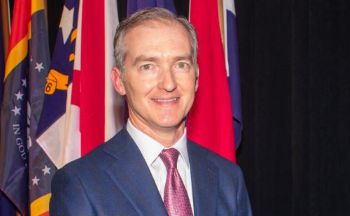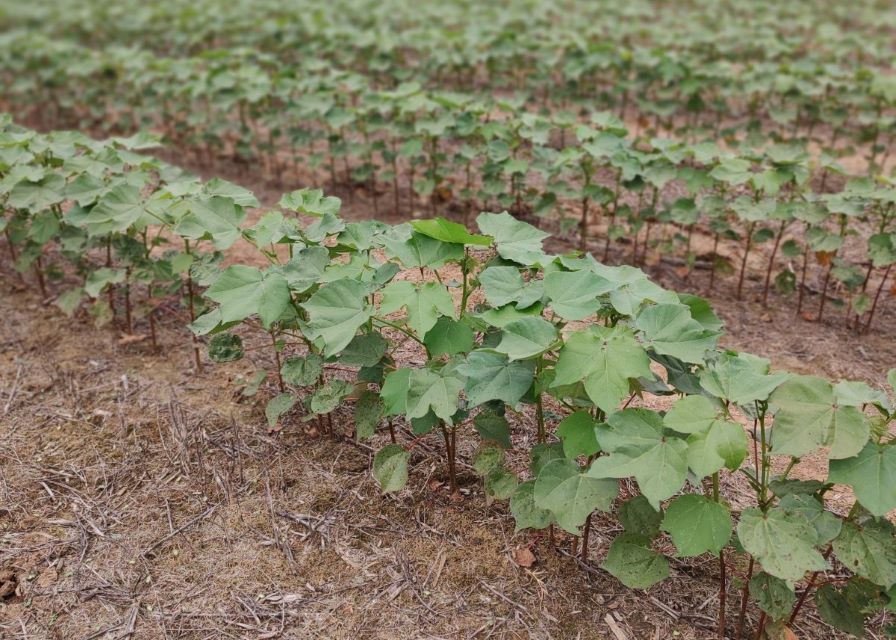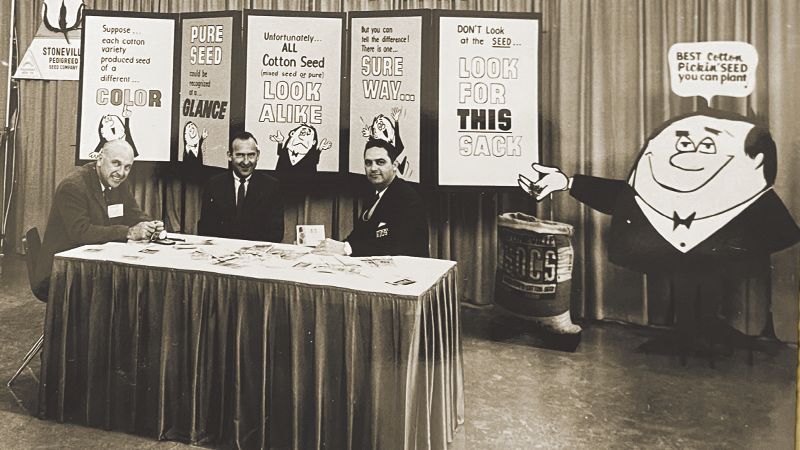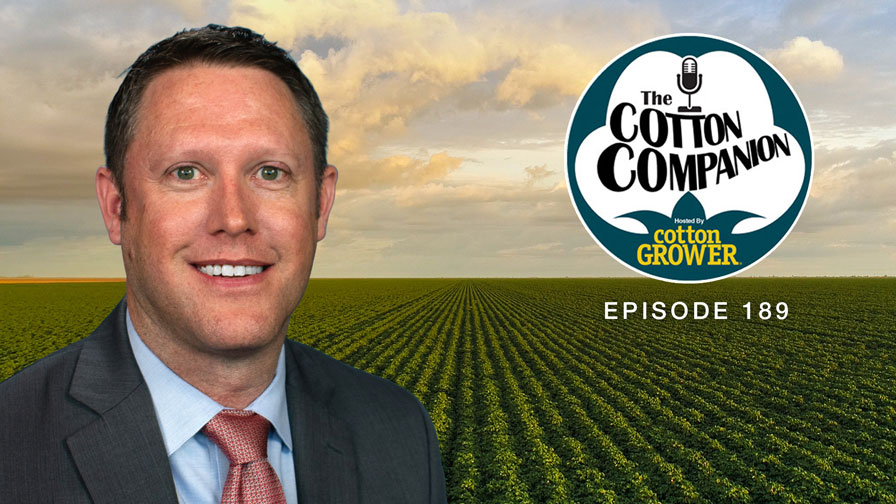NCC Chairman Johnson Ready for the Challenges
 Patrick Johnson (Photo: Jim Steadman)
Patrick Johnson (Photo: Jim Steadman)
Patrick Johnson is well aware of what he’s getting into this year as the newly elected chairman of the National Cotton Council (NCC).
He’s been handed a plate overloaded with farm policy and political issues (including a screaming need for a new farm bill), continued economic distress at the farm level, and market challenges from foreign competitors, export customers, and manmade fibers — just to name a few.
“There’s certainly no secret that the cotton industry – and agriculture in general — is not as healthy as it’s been in the past,” Johnson says. “There are a lot of challenges out there. In the past few months, we’ve seen some progress, obviously, in terms of economic aid and disaster relief packages. But that’s just the start. There’s still a lot to be done.”
Mississippi Delta Roots
Johnson is a fourth-generation farmer and a partner in Cypress Brake Planting Co., a diversified family farming operation in Tunica, MS, with nearly 10,000 acres of cotton, rice, corn, soybeans, and wheat. He grew up on the farm and officially joined the operation in 1996 after graduating from Ole Miss. Since then, he has sought to improve conservation and efficiency in the operation through implementation of new technology and best management practices.
In addition to the farming enterprise, he is involved in several ag related businesses including Buck Island Seed Co., Three Way Gin, and Tunica Air Inc., an aerial application service.
He jumped into industry involvement pretty quickly.
“My initial involvement probably started with Delta Council (a regional organization promoting agriculture and economic development in the Mississippi Delta), where I recently served as president,” says Johnson. “That grew into involvement with the National Cotton Council as a producer delegate.
“I think that watching the people who were dedicating their time serving those organizations attracted me to it. I was impressed by them and had a lot of respect for the men and women who were doing that. It led to a desire to see what I could learn from them and contribute to that work.”
He has stayed busy.
In addition to Delta Council and NCC, Johnson has served on the FSA County Committee in Tunica, is a director for Tunica County Farm Bureau, and is a Commissioner for the Mississippi Department of Environmental Quality. He has served on the EPA Farm Ranch and Rural Communities Committee and is a current member of the EPA’s Pesticide Policy Dialogue Committee.
With NCC, Johnson is a graduate of the Cotton Leadership Program and past participant in the Producer Information Exchange program. He has served as a NCC director and on multiple NCC committees, as well as serving as American Cotton Producers chairman. He served as NCC vice chairman for 2024.
Some might say he’s uniquely qualified for the job at hand.
“I chaired the Foreign Policy Task Force for American Cotton Producers, and that’s been a really good background considering everything we’re facing at this point,” says Johnson. “The economic conditions for cotton farmers have been degrading over the last several years. And we couldn’t be more grateful that we were able to get some economic assistance at the end of 2024. But that really doesn’t change the fundamental outlook for cotton production. We’re still in a very difficult spot, and we need something that would provide more long-term stability.”
Johnson was encouraged by the interaction by House Agriculture Committee Chairman G.T. Thompson during the recent NCC Annual Meeting in February.
“It’s encouraging to hear him talk about the new leadership on the ag committees,” he says. “We have to continue to communicate with them to capture some of the bandwidth in DC and work to get a new farm bill passed this year.
“I think it’s important for people to understand that everybody involved with the Council is well aware of how difficult this current situation is,” he points out. “I believe that, as a group, we’re up to the task. We’re working hard on the growers’ behalf and for all the segments, because when producers struggle, that spreads throughout the industry.”
Cotton’s challenges continue to stretch beyond the Cotton Belt. The U.S. is part of a much bigger global cotton industry, and there are certainly some threats remaining on the Council’s radar.
“The biggest threats that we have to deal with this year are really the same threats that we’ve been facing over many years,” notes Johnson. “As my predecessor Joe Nicosia often reminded us last year — if you don’t compete, you’re going to get beat. We have strong competition from other countries like Brazil.
“Competition with manmade fiber remains a huge issue,” he says. “We have to do all that we can to tell cotton’s positive story and its benefits for health and the environment compared to manmade fiber, and work to capture some of that market back. We have to make sure that we are meeting the customers’ needs and that we’re operating as efficiently as we can as an industry.”









